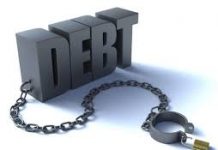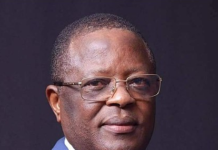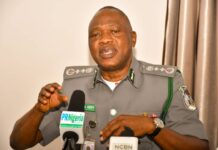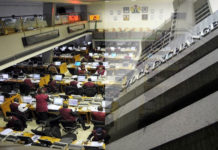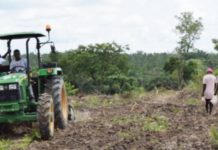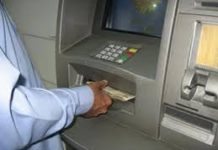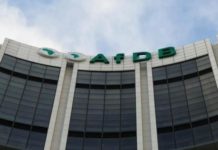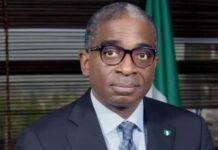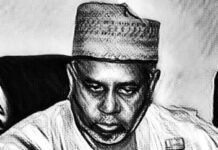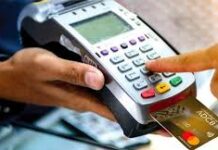

The presidential prophecy on ending current economic recession before this year ends is quite reassuring. However, some antitheses have been put forward by Nigerians arguing that the 2017 federal ‘Budget of Recovery and Growth’ is short of critical budgetary ingredients that could spontaneously stimulate economic recovery as envisioned by President Muhammadu Buhari who expressed the optimism at the opening of the induction course for Nigerian career ambassadors-designate in Abuja last month.
There is no paradigm shift in the 2017 Budget as figures for debt service, salary payment and other recurrent expenditures stand tall on the table. Analysis shows that N1.837 trillion (about 25.2%) of the total budget estimates is for debt servicing and N1.8 trillion on personnel costs or costs of governance. These aspects of 2017 budget are troubling and could threaten recovery of the economy.
For the fact that annual budget is an article of faith for the nation, analysts said the 2017 Budget could lay the firm foundation for the Nigeria economy to pull out of recession but uphill tasks have to be undertaken by the Government in that direction. “This is because the Budget is not an expansionary budget, it is not pro-investment, pro-growth, and pro-jobs. It is not enough to expect it to perform such a magic,” an Abuja-based development economist, Odilim Enwegbara, has argued. Economic misfortunes are now emanating with unusual symptoms and characteristics, therefore, the Government needs to come up with unconventional and multidimensional policies, designed to permanently put the economy on a path of sustainable growth. A casual look at the proposed N7.298 trillion 2017 budget, against the N6.06 trillion figures for the previous year might seem higher in size, but a closer review would show otherwise.
While Nigerians expressed misgiving over persistent excess liquidity that has given rise to a non-investable national domestic debt, double digit monetary policy rate and attendant unattractive high lending rates with associated consequences such as massive and rising unemployment, Enwegbara, questioned that “What economic sense does it make that a country with $350 billion infrastructure deficit is okay with 14 per cent debt to GDP ratio (with external portion less than 2 per cent), compared to its peer economies, such as South Africa, with such low infrastructure deficits and world-class infrastructure, and a debt to GDP ratio as high as 44 per cent, with external debt component of about 39.38 per cent?”
Read Also:
Nigeria has been waging a losing war against fiscal deficits because gifted pro-expansionary Nigerians were yet to be brought together by the government to perform the “inevitable economic diversification surgery.” Prescribing a panacea, Enwegbara opined that in a time of recession, government should maximise all avenues to increase its revenue. The benchmark oil price should be increased to $50 per barrel considering that oil price in 2017 is expected to rise as high as $65 per barrel. For lacking these fundamental insights “the 2017, with all the good intentions, rather than being an expansionary budget, is a contractionary budget, because it is smaller than the 2016 appropriation, especially with such low fiscal deficit of 2.18 per cent to GDP against South Africa’s 3.2 per cent,” he explained.
In his analysis, Sesan Michael, an economist, said there’s great need to borrow during recession in order to increase spending that will trigger exchanges towards revitalisation of the economy. However, a cognitive economic analysis of the expenditure side of the budget estimates as presented shows that Buhari’s government is out to spend less on areas that could aid and foster economic enterprises and innovativeness in 2017. Infrastructural development should attract the most attention since this will help lay effective economic architecture for investors – local and foreign – which will culminate in employment for the teeming youths. Instead, budget estimates for infrastructure is put at N2.24 trillion (about 30.7% of the budget). This percentage does not show that this government is determined to solve Nigeria’s economic problems.
There were concerns over the average exchange rate of N305/US$1 at which the Budget is anchored. Financial analysts observed that the depreciation by 35 per cent from the 2016 exchange rate of N197/$1 to N305/$1 by end-year 2016 arose from the improper sequestration of a big chunk of Nigeria’s forex earnings amounting to over $20 billion in unconstitutional domiciliary dollar accounts. The degree of depreciation was inconsistent with the actual fiscal deficit level below 2 per cent of GDP. Therefore, some of the citizens are yearning for total abrogation of the unconstitutional dual currency.
Erratic power supply has remained one of the serious problems debilitating growth of manufacturing industry and Small and Medium Enterprises (SMEs). There is no crystal clear fiscal road map in the Budget to correct menaces including gas pipeline vandalism and insufficient technology for distribution of electricity.
Though agricultural production has increased significantly, it has not translated into lower food prices. Transportation of the produce from the farm to the market via cratered roads imposes significant costs. Much of the produce, especially fruits, rot away for lack of proper storage, resulting in losses to producers and consumers. However, boosting production is only one half of the equation, the other half is overhauling the sector’s value chain not only to guarantee its sustainability but also to optimise its business potentials. More than ever before the sector requires massive investments in transportation infrastructure, storage and processing to reduce post-harvest losses and to bring the level of wastages to the barest minimum. Analysts prescribed change of attitude by Nigerians towards agriculture as a way out of the current economic frustration.
The government has intensified efforts at improving the road networks that have been in acute disrepair. Although the railways are still mired in the mid-20th Century, it is reassuring that in the 2017 budget, N213.14 billion is provided as counterpart funding for the Lagos-Kano, Calabar-Lagos, Ajaokuta-Itakpe-Warri and Kaduna-Abuja railway projects.


